The Interview: RSPCA inspector shares heartbreaking stories of Gold Coast animal rescues
Summer Heath-Crilley is the only RSPCA inspector on the Gold Coast - now she shares her stories of rescue and horrific neglect.
Gold Coast
Don't miss out on the headlines from Gold Coast. Followed categories will be added to My News.
They didn’t mean to hurt the dogs.
Summer Heath-Crilley found the elderly couple in an absolute pit of despair: the woman with neither mobility nor the ability to speak English, the man in the later stages of dementia.
Their home was squalid, their dogs emaciated and crawling with fleas – as were the humans.
As the Gold Coast’s only RSPCA inspector, Summer knew this was a rescue mission.
After months of hard work and collaboration with multiple community departments, Summer rehomed not just the dogs – but their owners too.
“Those poor people didn’t have anyone looking after them, they were on a downward spiral,” she says.
“Thank God someone noticed the dogs and called it in, as soon as I saw it I realised that everyone in that situation needed to be saved.
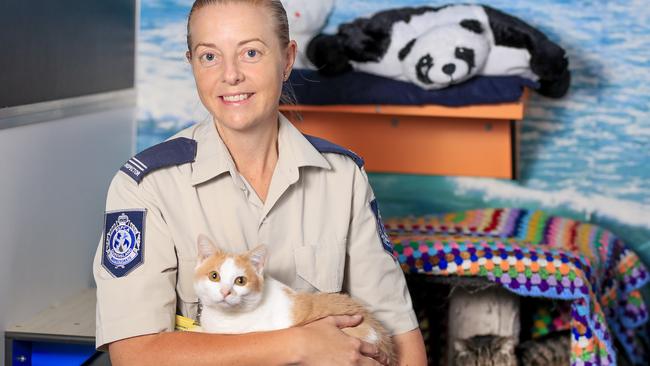
“We managed to get the two people in a nursing home so they could access the care they needed – and the dogs found new families too.
“It was an enormous amount of work and involved so many different groups but I just love that we all worked together to really do some good – not just for the animals but the humans too.
“That job helped make up for some of the heartbreak.”
Because, sometimes – in the privacy of her own car, Summer just has to cry.
Abandoned animals, abused dogs, cases of starvation, disease, cruelty, killings … she’s almost stopped being surprised. But she’s never stopped caring.
And actually, she just never stops.
For 12 years, Summer has been single-handedly attending every single report of animal cruelty from Coolangatta to Hope Island to Biddidaba.
Last year she attended more than 1200 jobs. By herself.
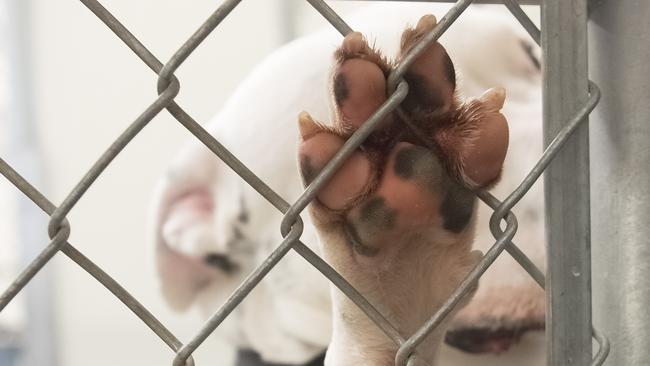
She drives alone in her car to each property, armed only with a duress alarm, to confront owners and animals – both of which potentially can be aggressive.
Every single case matters to her. Which is why it breaks her heart when people complain she doesn’t do enough – and that what she does do, isn’t done fast enough.
“I wish I could get to every job straight away, I hate that I have to triage the cases, but I’m overwhelmed. It’s impossible to get through all the jobs as fast as people would like. Or even as fast as I would like. I work for a charity and I’m paid for 40 hours a week. I don’t think I’ve ever worked just 40 hours in a week. The caseload just continues to grow.
OTHER NEWS
Bartender’s savage bashing of female customer
What to expect at Coast wedding expo
Mystery camp found in search for Theo
“If I get five jobs in today, but I had 10 jobs yesterday and only got to two of them, then I start the day with 13 outstanding jobs. Plus there’s inevitably follow-ups, plus prosecutions, and if I have court next week I might need to organise a warrant or line up paperwork.
“People get very annoyed when I don’t respond straight away but I just want them to understand that I am doing the absolute best job that I can with the resources that I have.
“The only way I can move forward is by placing one foot in front of the other.
“If we didn’t do this job there would be far more animals in worse living conditions. And yet even with those 1200 calls, I know we’re only scratching the surface of what’s happening out there.”
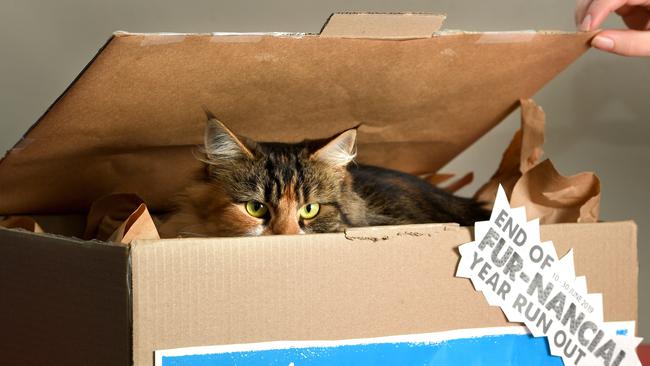
Despite pressure from the public, Summer says she is overwhelmingly grateful for every person who calls in a case of suspected cruelty.
She says despite the burden of an immense caseload, every job is an opportunity to educate, advise and help.
However, she says that help is not always welcome. And while she researches each job as much as possible, there is inevitably an element of danger in cold-calling any resident.
“We have our own database of properties which will tell me whether there have been previous jobs there. But because we are a charity, not a government body, we can’t access the databases from police, mental health, child protection, Department of Housing etc. Fortunately I have a very good relationship with those groups and they help me as much as they can.
“Still, sometimes it’s just straight-out cold-calling. I identify myself and attempt to discuss with the resident of the property what the allegations are. I aim to be completely neutral. After all, I’ve received one person’s version of events … it’s my job to objectively listen to the other side, as well assess the situation and animal myself.
“However, there is no denying that people can become very aggressive. You just have to be careful. I do have a duress alarm which, if pressed, will trigger a bunch of emails to different people. They will try to call me – because sometimes it’s just an animal who has jumped up and knocked the alarm.
“But if I don’t answer then they will ring triple 0 – and my car has a tracking device so they can locate me. Of course, if you’re in a rural area that can make it difficult, that can be an unknown entity in itself.”
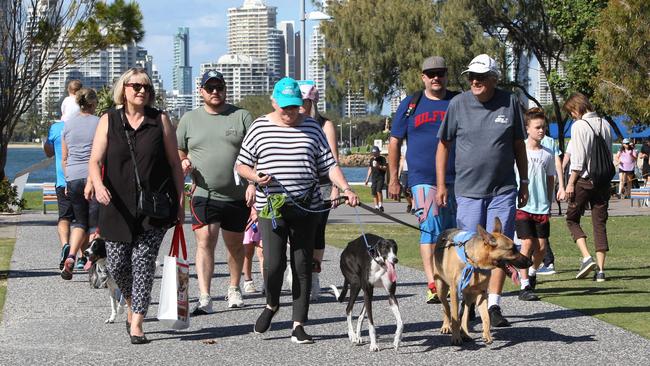
Summer says as our population increases, so too do reports of animal cruelty.
She says while lower socio-economic areas are often hot spots, she has been called to properties in Sanctuary Cove, Hope Island and Ephraim Island.
However, she says she believes the RSPCA is making a difference.
“You really do have to believe that it’s getting better. I don’t know if that’s actually true, but you have to believe in your purpose.
“The Gold Coast itself is a pretty animal-friendly kind of city, but, in general, we’re a throwaway society – there’s not enough emphasis on responsibility and as a result our pets are paying the price.
“I always say that owning an animal is not a right but a privilege. It’s a huge financial responsibility. Not just purchasing the pet but food, desexing, vaccinations, worming … let alone if something goes wrong.
“People tell me there should be animal Medicare. But the fact is that we are so lucky to have government who provides that service for us humans, they should not be expected to provide that for our pets. That is our job and our responsibility and if you can’t afford it then you can’t get a pet.
“Having said that, we don’t want animals to come into our shelters. Our intention is to give people the chance to be educated and improve life for their animals and themselves – and then to pass on that knowledge to other people.
“It does fall on deaf ears sometimes. That’s when you have to go to the next level — written directions, seizures, prosecution. There’s no one answer to a job.”
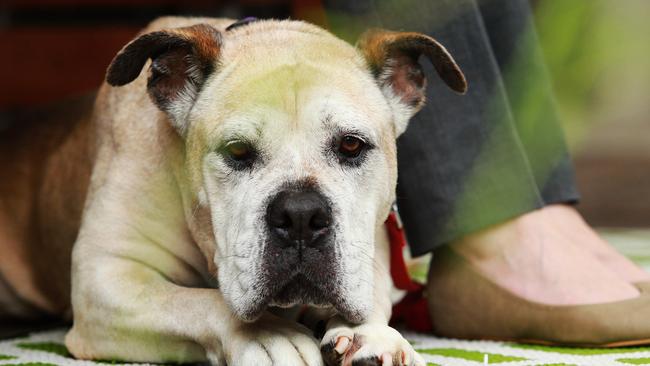
And that includes an answer that is not always popular with the public – euthanasia.
Summer says the RSPCA does not try to hide this policy and while it is always a last resort, it is a humane, professional procedure practised out of love.
“We don’t ever want to put any animal to sleep,” she says.
“People do get upset when we do, but we never try to make a secret out of it. We have an open book policy, every procedure is detailed in our yearly report.
“We are not the ones who have brought the animal to this point, but we are the ones tasked with making these decisions. Don’t blame us or the Animal Welfare League or the pound … we need to be responsible for the animals we are breeding.
“The truth is that it’s very difficult to find people to adopt healthy animals from the RSPCA shelters, let alone those with special needs. It’s a huge cost for one animal that prevents us helping so many others. We have to be fair to all the animals. If an animal needs to be put to sleep, it is so well cared for and looked after when in our care and euthanised humanely by a professional. That has to be better than a lifetime of suffering.
“Still, it’s always a tough call to make – and we don’t make it lightly, especially with dogs. They undergo behaviour assessment with our canine behaviourists, we have a rehab team if there is potential. We do as much as we possibly can. We know it’s not the ending that people want, but don’t be angry at us – work to educate others about responsible breeding and pet ownership.”
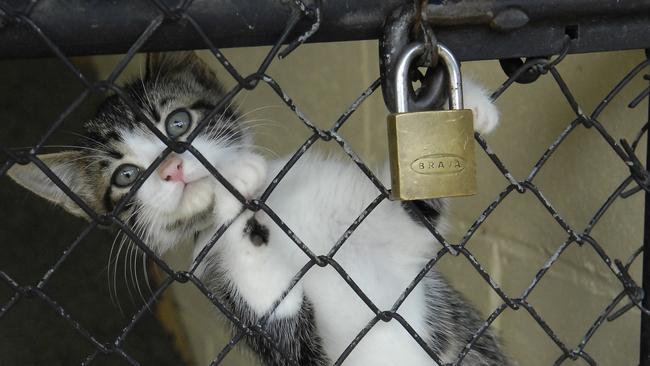
Despite a dozen years in this role, Summer says she is not immune to the emotion of the job.
In fact, as team leader to Brisbane-based RSPCA inspectors, she makes sure that she makes regular contact with her colleagues – for their sake and her own.
“There are days when I get in the car and burst into tears or just have my head in my hands and think, ‘I just don’t understand what’s even happening here’,” she says.
“This job you are on your own, so I make sure to check in with my colleagues via email every Monday.
“Even if we’re not physically together, I want them to know they have a place they can come to – to vent if they need to or get angry or cry.
SUBSCRIPTION OFFER: GET FULL DIGITAL ACCESS + JABRA WIRELESS HEADPHONES
“RSPCA has services that we can access for debriefing purposes but sometimes you want to talk to someone who has been there. We’ve seen things that just stay with you. My role as team leader is to make sure that everyone can use their voice and speak. We’re not robots, we’re only human.”
In fact, Summer says it was her soft spot for animals which lead her to a career in the RSPCA.
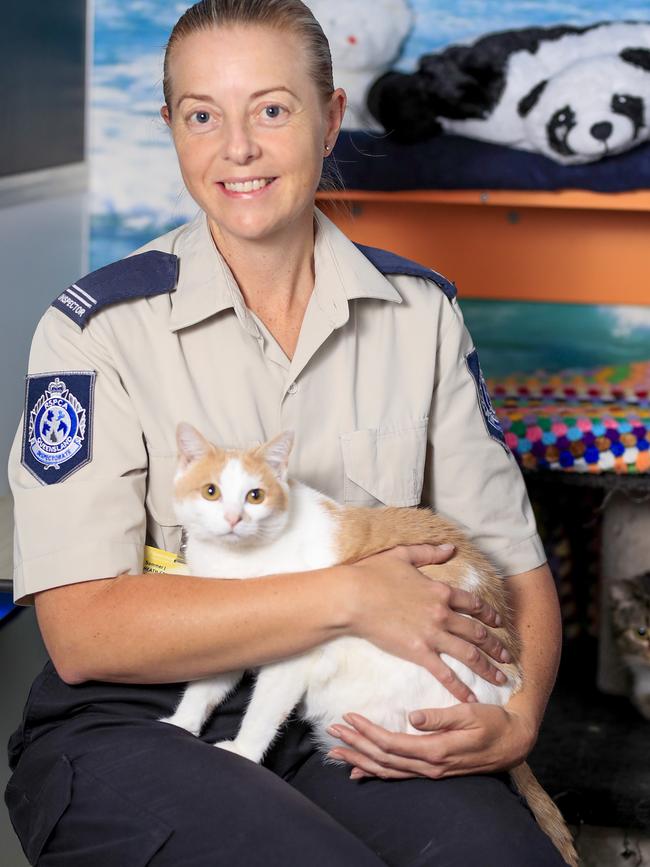
Born a country girl, she missed the connection to creatures when she moved to the Gold Coast and began volunteering at the RSPCA.
She later took a part-time role before resigning after a series of raids on puppy mills.
“I realised that this was what I wanted to do, I wanted to help these animals before it got to the point where they were in our shelter.
“I left so that I could increase my qualifications, did an Administration of Justice course at TAFE, joined the police service for 18 months, and then applied for this role.
“Being a police officer was hugely helpful – it gave me a solid understanding about legislation and also dealing with people. It really made me realise what a sheltered life I had lived.”
And while she would love to see a more responsible, sustainable society for humans and animals alike, she says public support cannot be overrated.
“Financial support is obviously appreciated as we’re a charity, but just moral support means so much too,” she says.
“It’s tough when you’re doing all that you can and it’s not enough. We’re on the same team – but there’s only one of me in my position.”
It’s ironic that criticism of this passionate animal warrior is, in fact, downright cruel.


